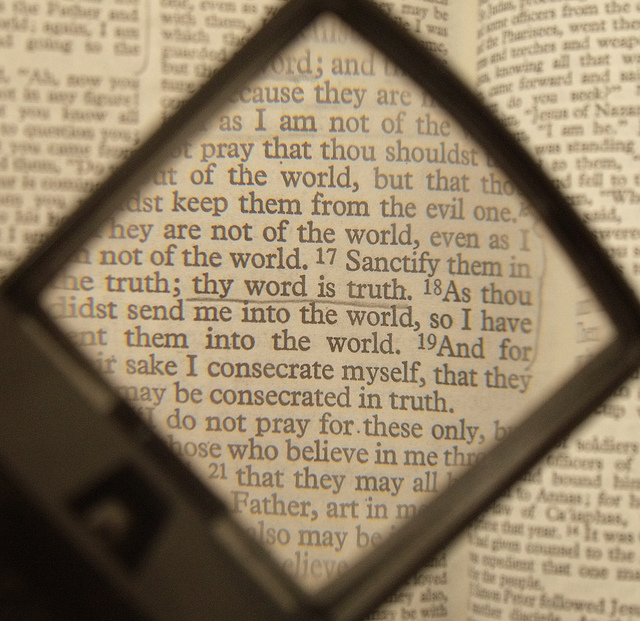Every preacher has his or her own personal anxiety dream. Mine is that I’m standing in the pulpit for the reading of the gospel, only to realize there’s no Bible. Of course, I’m visiting a congregation that I don’t know. I have no idea where the Bible is located, and I’m naked.
I’ve had this exact dream many times. The issue isn’t if there is an “I” in the sermon. The question is “How am I in the sermon?” Every sermon is an exercise in vulnerability. Every sermon is a risk because the good news of Jesus Christ can only be proclaimed through words that I write and speak. My own body, even the tone of my voice and the gesture of my hands, is an incarnation, an embodiment of the gospel. For me, this is part of the thrill and the terror of preaching. It’s always a struggle to know how to bring myself to the sermon.
It’s better to tell stories of failure than stories of success. I have a friend who says that every sermon he’s ever heard makes the preacher seem like a hero. I probably need to invite him to hear me preach to see if he hears the same thing from me. Martin Luther ended his life saying, “We are all beggars. This is true.” If the “I” in the sermon is going to lead to good news, likely it has to begin with this kind of humility. Better to be “seen” as a jackass than a saint. There’s a risk, however, of false humility, the kind that makes the listener say, “Oh pastor, you’re not that bad. I like you. I think you’re great.” Our job is not to make the pastor great again.
“We” is better than “you.” Particularly, when a text takes us into prophetic speech or the voice of the law, it’s probably better to allow ourselves to be indicted right along with everyone else. I’ll often include phrases like, “I could be projecting, but I wonder…” or “Maybe I’m the only one that gives in to Pizza Hut commercials.” Fred Craddock says that most of us can tolerate a challenge when it’s not direct; when it can be “overheard.”1 Sometimes our own experience, when shared appropriately, can be the place where listeners see themselves in new ways.
It’s good to be brutally honest about our motivations. The most dangerous preachers think they are not serving their ego needs in a sermon. We need to be self-conscious about what we’re getting when we share our own experiences. Do I want to tell this story because I like to tell it? Do I want to make them laugh? Connect with me? Demonstrate that I’m human? None of these are good enough reasons for telling a personal story. We’re all drawn to use preaching to receive affection, praise, love, connection. The better question is, “How do I serve the gospel? How do I serve the sermon itself? Will the people remember me, or will they see the Christ who loves them through me? I recognize that this is not always clear. It’s the messiness and mystery of incarnation.
Make sure the story carries the main point. I’m often disturbed to learn that all the theological and poetic insight of my sermon isn’t remembered. A story about my cat leads to church door conversations about cats. Maybe there’s no way to avoid this; and maybe it’s not all bad. People want to connect to the preacher. Likely, that helps them to hear the words better. However, it makes me ask, “If all they’re going to remember is the story about my cat, will it be a story that draws a straight line from Mr. George Bailey to the Gospel of Jesus Christ?” Will it be a short hop from illustration to meaning — an obvious correlation between life experience and divine revelation?
Of course, the saving grace is that God takes what we offer, even our tendencies to put the “I” at the center, and turns it toward good news, even for us.
How do you negotiate the “I” of the sermon? When does it go well? When has it been a challenge?
Notes
1 Craddock, Fred B. “Overhearing the Gospel: Revised and Expanded Edition.” Chalice Press, St. Louis, 2001.

